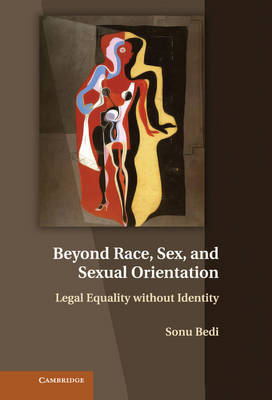
Beyond Race, Sex, and Sexual Orientation
Legal Equality without Identity
Seiten
2013
Cambridge University Press (Verlag)
978-1-107-01835-8 (ISBN)
Cambridge University Press (Verlag)
978-1-107-01835-8 (ISBN)
The conventional interpretation of equality under the law singles out certain groups or classes for constitutional protection. Laws that discriminate against them are generally unconstitutional. This book argues that such an approach suffers from hitherto unnoticed normative and political problems, and it elucidates a competing, extant interpretation of equal protection jurisprudence.
The conventional interpretation of equality under the law singles out certain groups or classes for constitutional protection: women, racial minorities, and gays and lesbians. The United States Supreme Court calls these groups 'suspect classes'. Laws that discriminate against them are generally unconstitutional. While this is a familiar account of equal protection jurisprudence, this book argues that this approach suffers from hitherto unnoticed normative and political problems. The book elucidates a competing, extant interpretation of equal protection jurisprudence that avoids these problems. The interpretation is not concerned with suspect classes but rather with the kinds of reasons that are already inadmissible as a matter of constitutional law. This alternative approach treats the equal protection clause like any other limit on governmental power, thus allowing the Court to invalidate equality-infringing laws and policies by focusing on their justification rather than the identity group they discriminate against.
The conventional interpretation of equality under the law singles out certain groups or classes for constitutional protection: women, racial minorities, and gays and lesbians. The United States Supreme Court calls these groups 'suspect classes'. Laws that discriminate against them are generally unconstitutional. While this is a familiar account of equal protection jurisprudence, this book argues that this approach suffers from hitherto unnoticed normative and political problems. The book elucidates a competing, extant interpretation of equal protection jurisprudence that avoids these problems. The interpretation is not concerned with suspect classes but rather with the kinds of reasons that are already inadmissible as a matter of constitutional law. This alternative approach treats the equal protection clause like any other limit on governmental power, thus allowing the Court to invalidate equality-infringing laws and policies by focusing on their justification rather than the identity group they discriminate against.
Sonu Bedi is Associate Professor of Government at Dartmouth College. Bedi works in the intersection of law and political theory. His publications include Rejecting Rights (Cambridge, 2009), Political Contingency: Studying the Unexpected, the Accidental, and the Unforeseen (co-editor, 2007) and various articles on constitutional law and political philosophy.
Part I. Identity versus Powers: 1. Suspect class and the dilemma of identity; 2. A powers review; Part II. Race: 3. How constitutional law rationalizes racism; 4. Why racial profiling is based on animus; Part III. Sex and Sexuality: 5. The puzzle of intermediate scrutiny; 6. Same-sex marriage and the disestablishment of marriage.
| Erscheint lt. Verlag | 2.9.2013 |
|---|---|
| Verlagsort | Cambridge |
| Sprache | englisch |
| Maße | 152 x 229 mm |
| Gewicht | 560 g |
| Themenwelt | Recht / Steuern ► Allgemeines / Lexika |
| Recht / Steuern ► EU / Internationales Recht | |
| Recht / Steuern ► Öffentliches Recht ► Verfassungsrecht | |
| Sozialwissenschaften ► Soziologie | |
| ISBN-10 | 1-107-01835-8 / 1107018358 |
| ISBN-13 | 978-1-107-01835-8 / 9781107018358 |
| Zustand | Neuware |
| Haben Sie eine Frage zum Produkt? |
Mehr entdecken
aus dem Bereich
aus dem Bereich
mit Menschenrechtskonvention, Verfahrensordnung des Europäischen …
Buch | Softcover (2024)
dtv Verlagsgesellschaft
CHF 13,85


